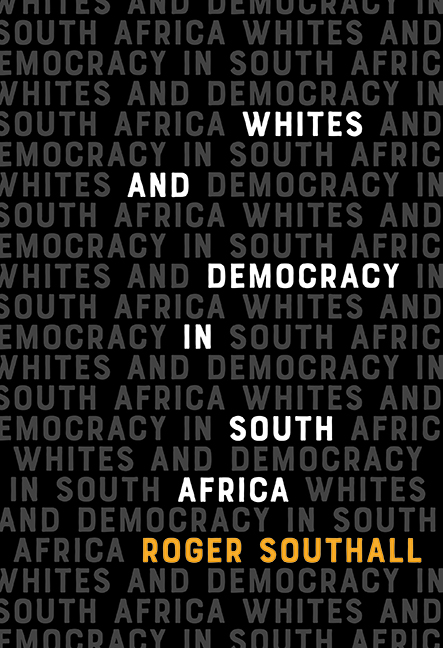9 - Afrikaner Politics after Apartheid
Published online by Cambridge University Press: 26 May 2022
Summary
Van der Westhuizen argues that a sea-change took place in Afrikaner attitudes after 1994 as a result of the attraction of Afrikaners’ to ‘global values such as materialism and consumerism’. The steady upward rise of Afrikaners into the middle class had worked to ‘unstitch’ the ‘multi-classed Afrikaner nationalist alliance’, and now the ANC's adoption of a predominantly neo-liberal framework under Mandela and Mbeki was to prove ‘the best possible antidote to Afrikaner ethnic mobilization’. Despite their initial worries, Afrikaners were to prosper along with other white South Africans following the advent of democracy. This provides a starting point for considering how Afrikaners have responded to the change in political regime.
The Afrikaner elite and middle class after 1994
The Afrikaner capitalist elite was well placed to take full advantage of the ANC government's pro-business policies. Afrikaner companies proceeded to extend their reach across the African continent and numerous countries across the world. Notable beneficiaries included Nasionale Pers, formerly a close ally of the NP, which by the early 2000s had become the largest media company (Naspers) in Africa and acquired extensive assets in Asia, Europe and Latin America. By this time, too, Gencor – the descendant of Anglo-American's sale of General Mining to Sanlam's Federal Mynbou in 1964 – had become BHP Billiton, ‘the largest mining company in the world’, having listed on the London Stock Exchange. Yet even their performance was to be outshone by Johann Rupert’s Remgro. Carved out of Rembrandt, a tobacco company originally formed in the 1940s when Rupert's father purchased shares in the cigarette company Rothman's International, Remgro enjoyed explosive growth after 1993, acquiring major interests in healthcare, banking, insurance, food, liquor and infrastructure to become the largest of the huge conglomerates at the summit of South Africa’s corporate hierarchy by 2015.
Rebecca Davies has added detail about how Afrikaner capital repositioned itself for entry into the global economy and how it continued to merge seamlessly with both ‘English’ and foreign capital;
- Type
- Chapter
- Information
- Whites and Democracy in South Africa , pp. 180 - 204Publisher: Boydell & BrewerPrint publication year: 2022

